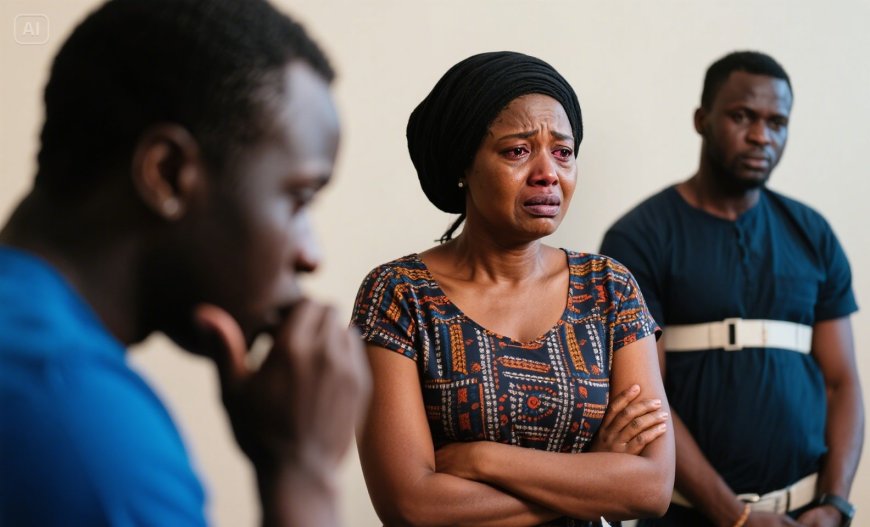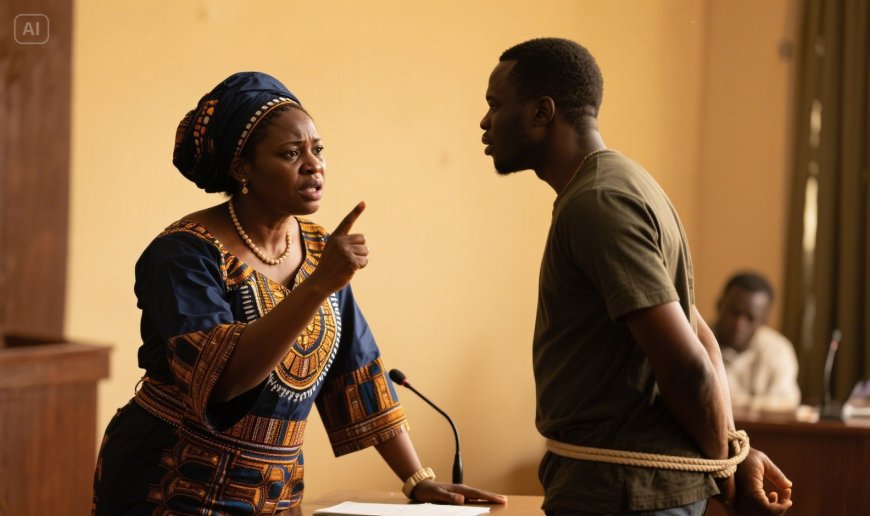Rape in Nigeria: Law, Penalties & Legal Complexities Explained
Explore how rape is legally defined in Nigeria, the penalties under Nigerian criminal law, and how victims and the accused can navigate complex legal and societal implications of accusations.

Rape is a heinous crime that inflicts profound physical and psychological trauma on survivors. In Nigeria, the law takes this crime very seriously, outlining specific definitions, severe penalties, and procedures for investigation. However, navigating rape cases can be complex, requiring careful consideration of evidence and sensitivity to the vulnerability of survivors. This article delves into the legal aspects of rape in Nigeria, explores the prescribed penalties, and discusses the delicate issue of discerning truth and falsehood in such sensitive accusations.

What the Law Says About Rape in Nigeria:
The legal definition of rape varies depending on the region of Nigeria, with the Penal Code applicable primarily in the Northern states and the Criminal Code operating in the Southern states. However, the core concept remains the same: non-consensual sexual intercourse.
Penal Code: Defines rape as sexual intercourse with a woman without her consent or with her consent obtained by force, threat, deceit, or impersonation. Consent is nullified if the woman is under duress, unconscious, or mentally incapacitated.
Criminal Code: Defines rape similarly, focusing on unlawful carnal knowledge of a woman without her consent, obtained through force, threats, or fraud. Importantly, the Criminal Code also considers the mental capacity of the woman, rendering consent invalid if she is deemed incapable of understanding the nature of the act.
In essence, the crucial element in determining rape is the lack of voluntary and informed consent. This highlights the importance of understanding the nuances of consent, especially in situations where power imbalances exist.
Penalties for Rape in Nigeria:
The penalties for rape in Nigeria are severe, reflecting the gravity of the crime.
Penal Code: Typically prescribes life imprisonment.
Criminal Code: Also prescribes life imprisonment.
These severe punishments underscore the Nigerian legal system's commitment to holding perpetrators accountable for their actions and deterring future offenses. However, despite these stringent laws, the actual conviction rate for rape cases remains a concern due to various factors, including societal stigma, challenges in proving consent, and weaknesses in the investigation process.

Navigating the Complexities: Detecting Lies About Rape:
The issue of false accusations in rape cases is a sensitive and often contentious topic. While it is crucial to emphasize that false accusations are relatively rare compared to the actual incidence of rape, it is equally important to ensure fairness and justice in the investigative process.
It's vital to remember that the burden of proof always rests with the prosecution to prove the accused's guilt beyond a reasonable doubt. Several factors and investigative techniques are employed to assess the veracity of a claim, keeping in mind the psychological impact rape has on victims which can affect recall.
Thorough Investigation: A comprehensive investigation is paramount. This includes gathering forensic evidence, interviewing witnesses, and meticulously documenting the survivor’s account.
Forensic Evidence: Examining physical evidence, such as DNA, semen, and injuries, can corroborate or contradict the claims made by both the accuser and the accused.
Inconsistencies in Testimony: Whilst trauma can impact memory, significant and repeated inconsistencies in the survivor’s statements, particularly concerning crucial details of the alleged assault, might raise concerns. However, these inconsistencies should be evaluated in light of the survivor's emotional state and the potential for memory distortions due to trauma.
Motive: Investigating potential motives for a false accusation, while approaching this aspect with extreme caution and sensitivity, can be part of a thorough investigation. However, it is crucial to avoid victim-blaming and ensure that the investigation focuses on the facts of the case rather than speculating about the survivor's character.
Credibility Assessment: Experienced investigators must assess the credibility of both the accuser and the accused. This involves evaluating their demeanor, background, and previous interactions.
Important Considerations:
The Impact of Trauma: Rape is a deeply traumatic experience. Survivors often experience memory loss, emotional distress, and difficulty recalling events accurately. Investigators must be trained to understand the psychological impact of trauma and avoid interpreting these symptoms as signs of deception.
The Rarity of False Accusations: Research consistently demonstrates that false allegations of rape are rare. Focusing disproportionately on the possibility of false accusations can create a chilling effect, discouraging legitimate survivors from reporting the crime.
Victim-Blaming: It is crucial to avoid victim-blaming in all aspects of the investigation. Survivors should be treated with respect and compassion, and their statements should be taken seriously.

Conclusion:
Rape is a grave crime in Nigeria, punishable by severe penalties. Understanding the legal definition of rape, the prescribed punishments, and the complexities involved in investigating such cases is essential for ensuring justice for both survivors and the accused. Comprehensive, respectful, and thorough investigations, coupled with a deep understanding of the psychological impact of trauma, are paramount for navigating the delicate balance between protecting survivors and upholding the principles of fairness and justice within the legal system. It's crucial to approach these cases with sensitivity, recognizing the lasting impact of rape on survivors and ensuring that all parties are treated with dignity and respect throughout the investigation and legal proceedings.
Advert:

Kindly share this story:
Contact: report@probitasreport.com
Stay informed and ahead of the curve! Follow The ProbitasReport Online News Report on WhatsApp for real-time updates, breaking news, and exclusive content especially when it comes to integrity in business and financial fraud reporting. Don't miss any headline – and follow ProbitasReport on social media platforms @probitasreport
[©2025 ProbitasReport - All Rights Reserved. Reproduction or redistribution requires explicit permission.]
What's Your Reaction?





































































































